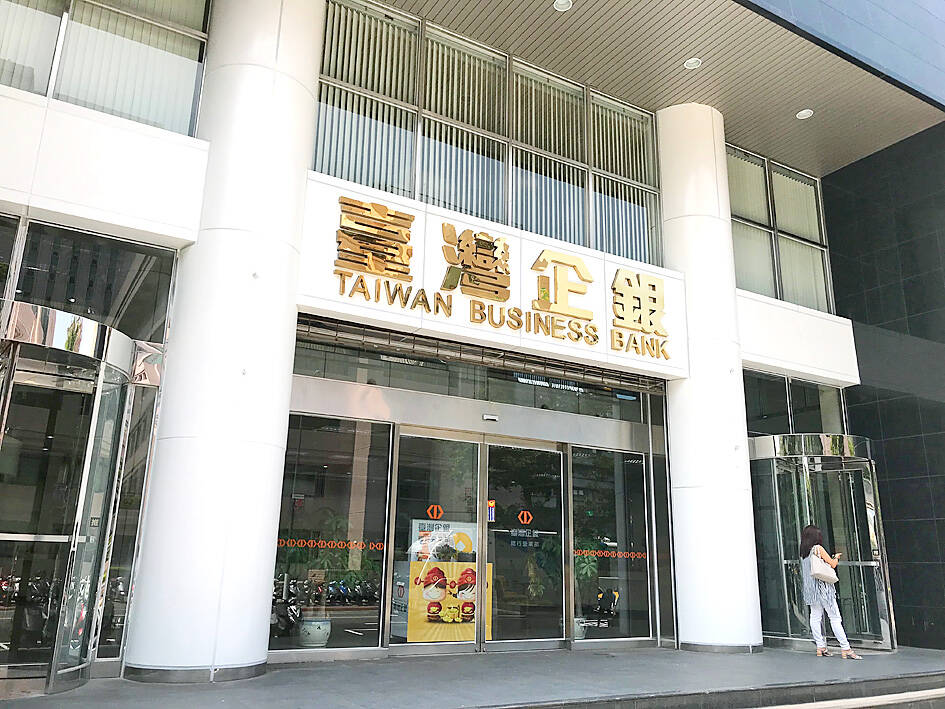The number of government-invested financial institutions that have adopted the “Equator Principles” rose to nine on Friday with the addition of Taiwan Business Bank (臺灣中小企業銀行), the Ministry of Finance said.
The principles were introduced in the US in 2003 to assess the risks associated with large project financing, National Treasury Administration Deputy Director-General Yen Chun-lan (顏春蘭) said.
They serve as a common baseline and risk management framework for financial institutions to identify, assess and manage environmental and social risks when assessing loan applications for large infrastructure and industrial projects, as such ventures could adversely affect people and the environment, the association said.

Photo: Chen Mei-ying, Taipei Times
Each member of the association is known as an Equator Principles Financial Institution, and must follow 10 guidelines to assess social and environmental risks, it said.
These include each institution’s environmental and social management system and the Equator Principles action plan, which includes stakeholder engagement, a grievance mechanism, independent review, independent monitoring and reporting, and reporting and transparency to provide a minimum standard for due diligence.
The nation’s first government-invested financial institution to join the association was First Commercial Bank (第一商業銀行), which became a member in December 2020. It was followed by Mega International Commercial Bank (兆豐國際商業銀行) and Taiwan Cooperative Financial Holding Co (合作金庫金控), which joined in August last year and March respectively, the ministry said.
The other members, which all joined this year, are the Export-Import Bank of the ROC (中國輸出入銀行), Changhwa Commercial Bank (彰化商業銀行), Bank of Taiwan (臺灣銀行), Land Bank of Taiwan (臺灣土地銀行) and Hua Nan Commercial Bank (華南商業銀行), the ministry said.
The firms also observe environmental, social and corporate governance criteria, along with corporate social responsibility policies, Yen said, adding that they have established their own committees to facilitate corporate sustainability.

To many, Tatu City on the outskirts of Nairobi looks like a success. The first city entirely built by a private company to be operational in east Africa, with about 25,000 people living and working there, it accounts for about two-thirds of all foreign investment in Kenya. Its low-tax status has attracted more than 100 businesses including Heineken, coffee brand Dormans, and the biggest call-center and cold-chain transport firms in the region. However, to some local politicians, Tatu City has looked more like a target for extortion. A parade of governors have demanded land worth millions of dollars in exchange

An Indonesian animated movie is smashing regional box office records and could be set for wider success as it prepares to open beyond the Southeast Asian archipelago’s silver screens. Jumbo — a film based on the adventures of main character, Don, a large orphaned Indonesian boy facing bullying at school — last month became the highest-grossing Southeast Asian animated film, raking in more than US$8 million. Released at the end of March to coincide with the Eid holidays after the Islamic fasting month of Ramadan, the movie has hit 8 million ticket sales, the third-highest in Indonesian cinema history, Film

BIG BUCKS: Chairman Wei is expected to receive NT$34.12 million on a proposed NT$5 cash dividend plan, while the National Development Fund would get NT$8.27 billion Taiwan Semiconductor Manufacturing Co (TSMC, 台積電), the world’s largest contract chipmaker, yesterday announced that its board of directors approved US$15.25 billion in capital appropriations for long-term expansion to meet growing demand. The funds are to be used for installing advanced technology and packaging capacity, expanding mature and specialty technology, and constructing fabs with facility systems, TSMC said in a statement. The board also approved a proposal to distribute a NT$5 cash dividend per share, based on first-quarter earnings per share of NT$13.94, it said. That surpasses the NT$4.50 dividend for the fourth quarter of last year. TSMC has said that while it is eager

‘IMMENSE SWAY’: The top 50 companies, based on market cap, shape everything from technology to consumer trends, advisory firm Visual Capitalist said Taiwan Semiconductor Manufacturing Co (TSMC, 台積電) was ranked the 10th-most valuable company globally this year, market information advisory firm Visual Capitalist said. TSMC sat on a market cap of about US$915 billion as of Monday last week, making it the 10th-most valuable company in the world and No. 1 in Asia, the publisher said in its “50 Most Valuable Companies in the World” list. Visual Capitalist described TSMC as the world’s largest dedicated semiconductor foundry operator that rolls out chips for major tech names such as US consumer electronics brand Apple Inc, and artificial intelligence (AI) chip designers Nvidia Corp and Advanced